
The Bhagavad Gita
Under the circumstances, it is admitted that Lord Kåñëa is the Supreme Lord, superior in position to the living entity, Arjuna, who is a forgotten soul deluded by mäyä. Bhagavad Gita is Krishna's battlefield discussion with Arjuna. By A.C. Bhaktivedanta Swami Prabhupada. With search engine, art gallery, original Sanskrit, word meanings and.
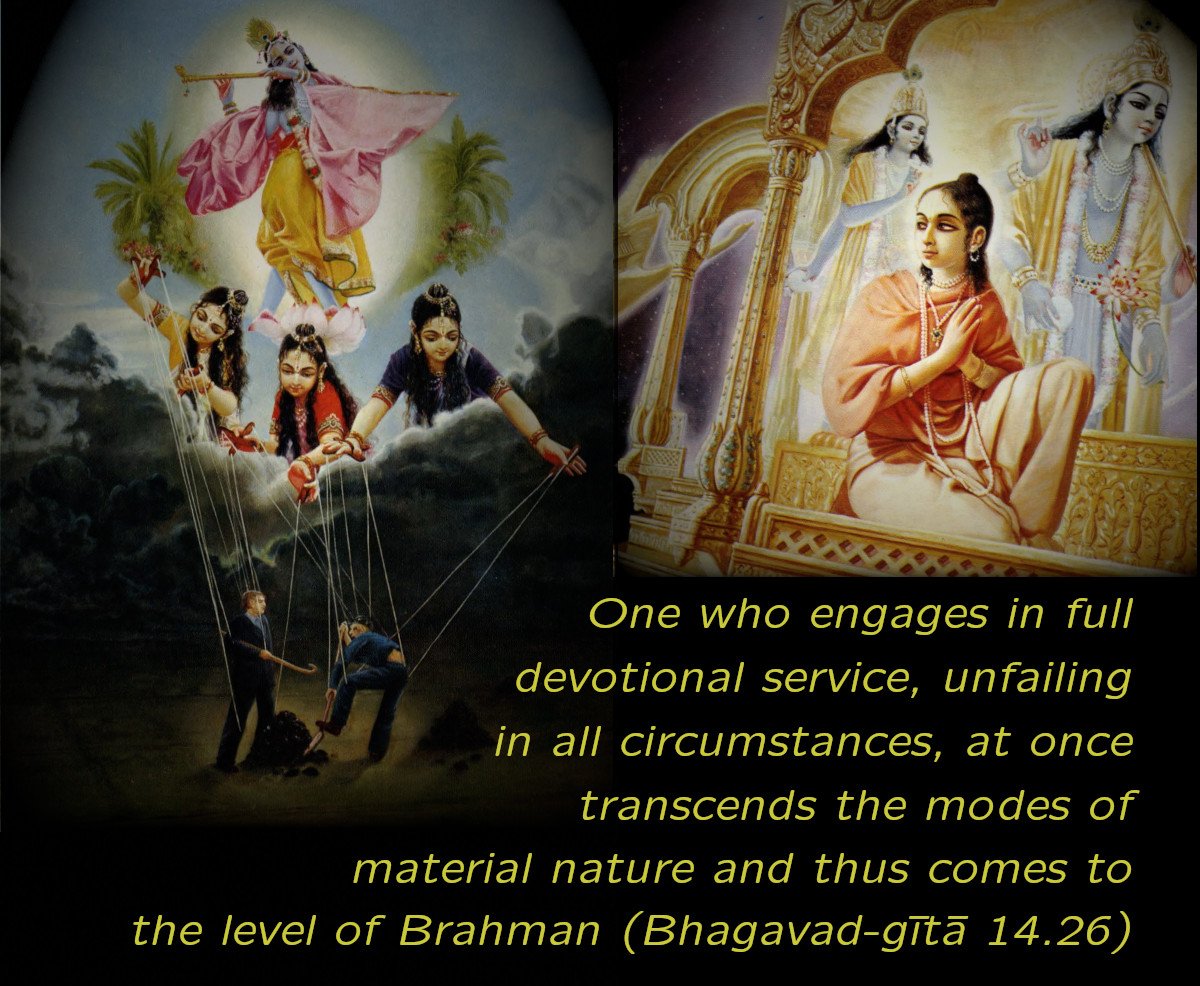
Bhagavad Gita Chapter 14, Verse 26 VivekaVani
volume Bhagavad-gītā 2.13 Prabhupāda: dehino 'smin yathā dehe kaumāraṁ yauvanaṁ jarā tathā dehāntara-prāptir dhīras tatra na muhyati [ Bg 2.13] [As the embodied soul continually passes, in this body, from boyhood to youth to old age, the soul similarly passes into another body at death. The self-realized soul is not bewildered by such a change.]

Bhagavad Gita Book by Swami B. P. Puri Official Publisher Page Simon & Schuster
Prabhupada > Books > Bhagavad-gita As It Is (1972) > Bg 2 > Bg 2.13 : TEXT 13. dehino 'smin yatha dehe. kaumaram yauvanam jara. tatha dehantara-praptir. dhiras tatra na muhyati. SYNONYMS.
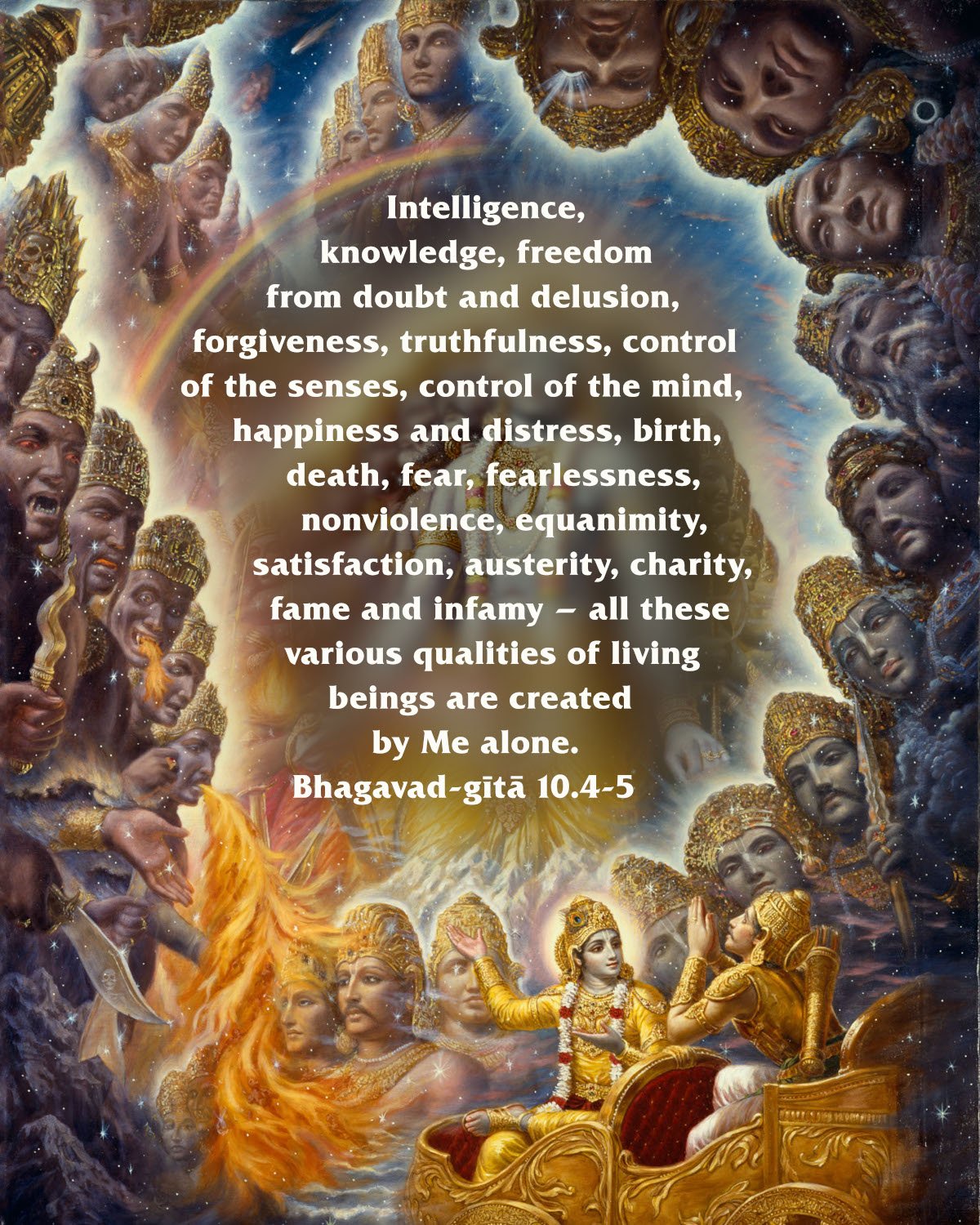
Bhagavad Gita Chapter 10, Verse 45 VivekaVani
BG 13.13: I shall now reveal to you that which ought to be known, and by knowing which, one attains immortality. It is the beginningless Brahman, which lies beyond existence and non-existence. Commentary Day and night are like two sides of the same coin for one cannot exist without the other.
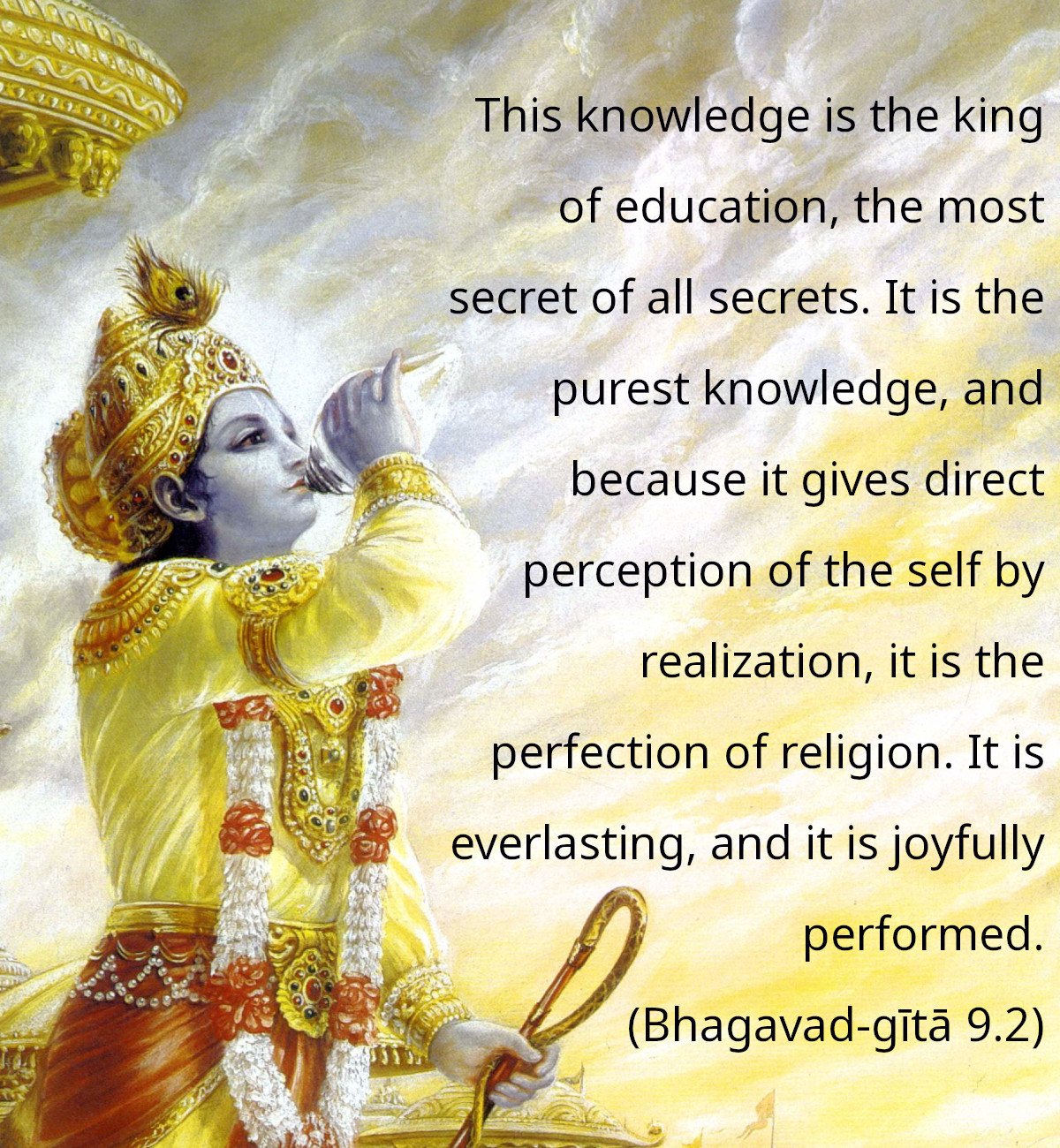
Bhagavad Gita Chapter 9, Verse 2 VivekaVani
Bhagavad Gita Chapter 2 - Verse 13 - Just as in this body the embodied (soul) passes into childhood, youth and old age, so also does he pass into another body; the firm man does not grieve at it.
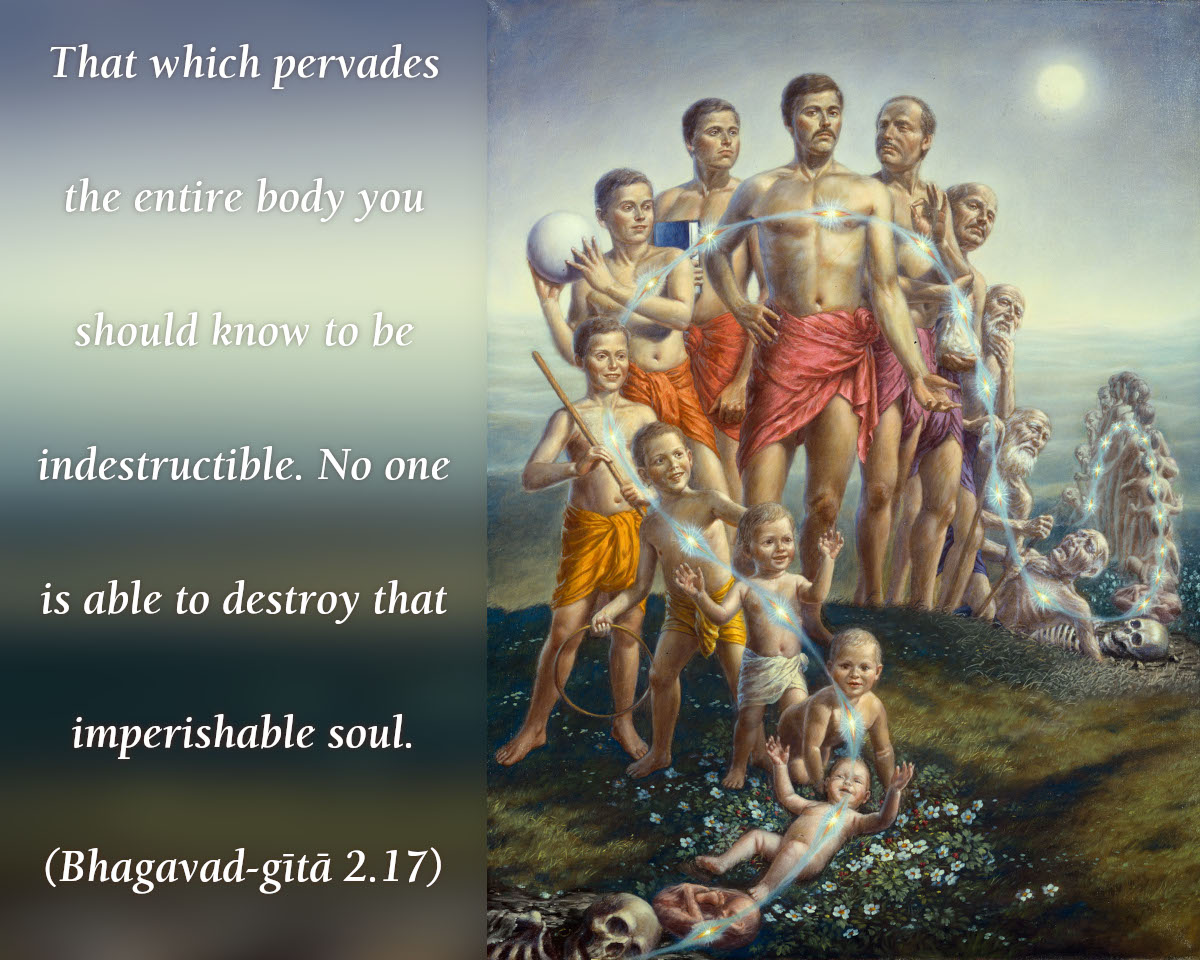
Bhagavad Gita Chapter 2, Verse 17 VivekaVani
Bhagavad Gita Chapter 13 - Verse 2 - The Blessed Lord said: This body, O Kaunteya is called KSHETRA (the Field) and he who knows it is called KSHETRAJNA (the Knower-of-the-Field) by those who know them (KSHETRA and KSHETRAJNA) i. e. , by the sages . - All Bhagavad Gita (Geeta) Verses in Sanskrit, English, Transliteration, Word Meaning, Translation, Audio, Shankara Bhashya, Adi Sankaracharya.
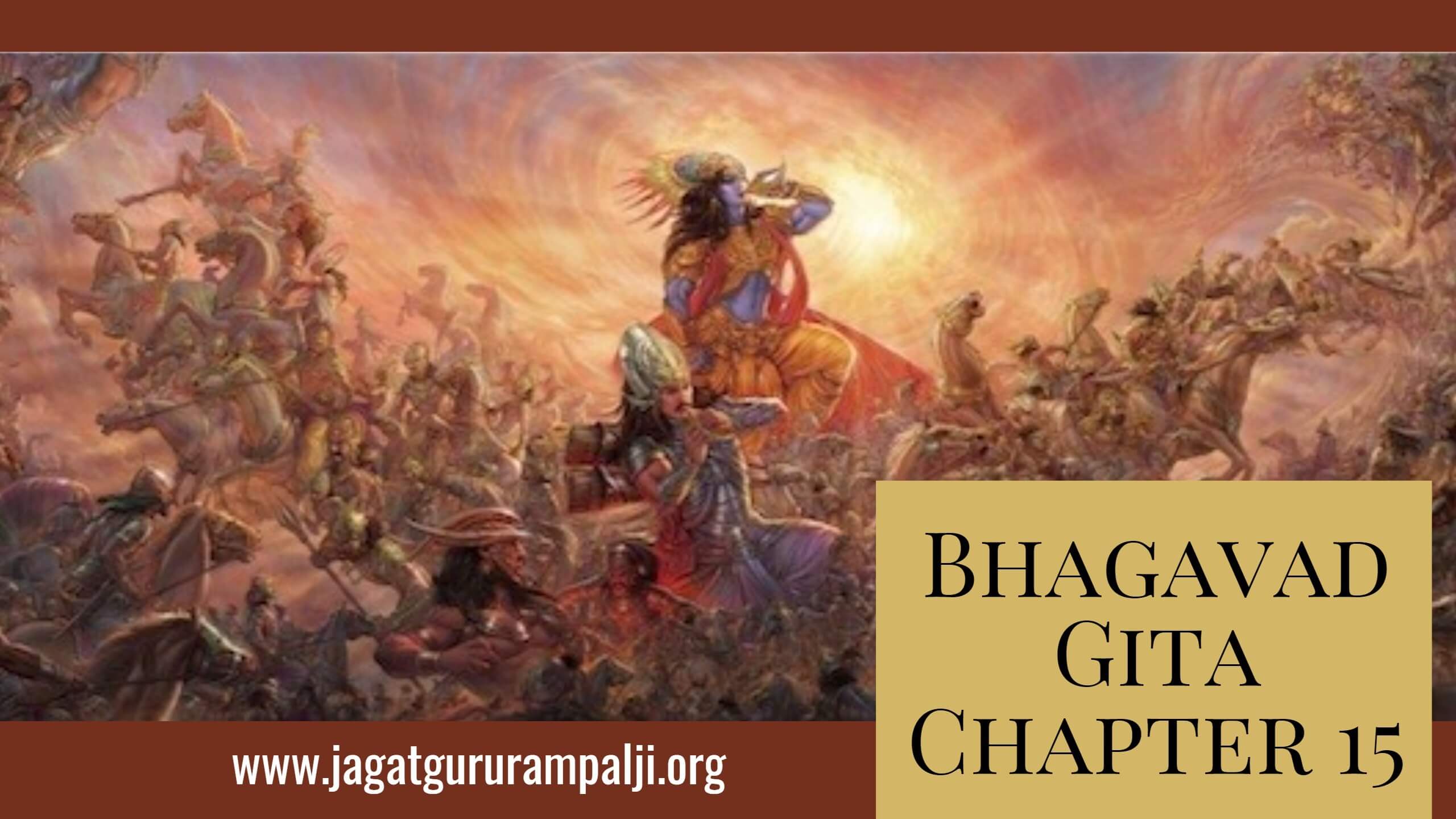
Chapter 15 Bhagavad Gita Sant Rampal Ji
Translation. Arjuna said: O my dear Kṛṣṇa, I wish to know about prakṛti [nature], puruṣa [the enjoyer], and the field and the knower of the field, and of knowledge and the object of knowledge. The Supreme Personality of Godhead said: This body, O son of Kuntī, is called the field, and one who knows this body is called the knower of.
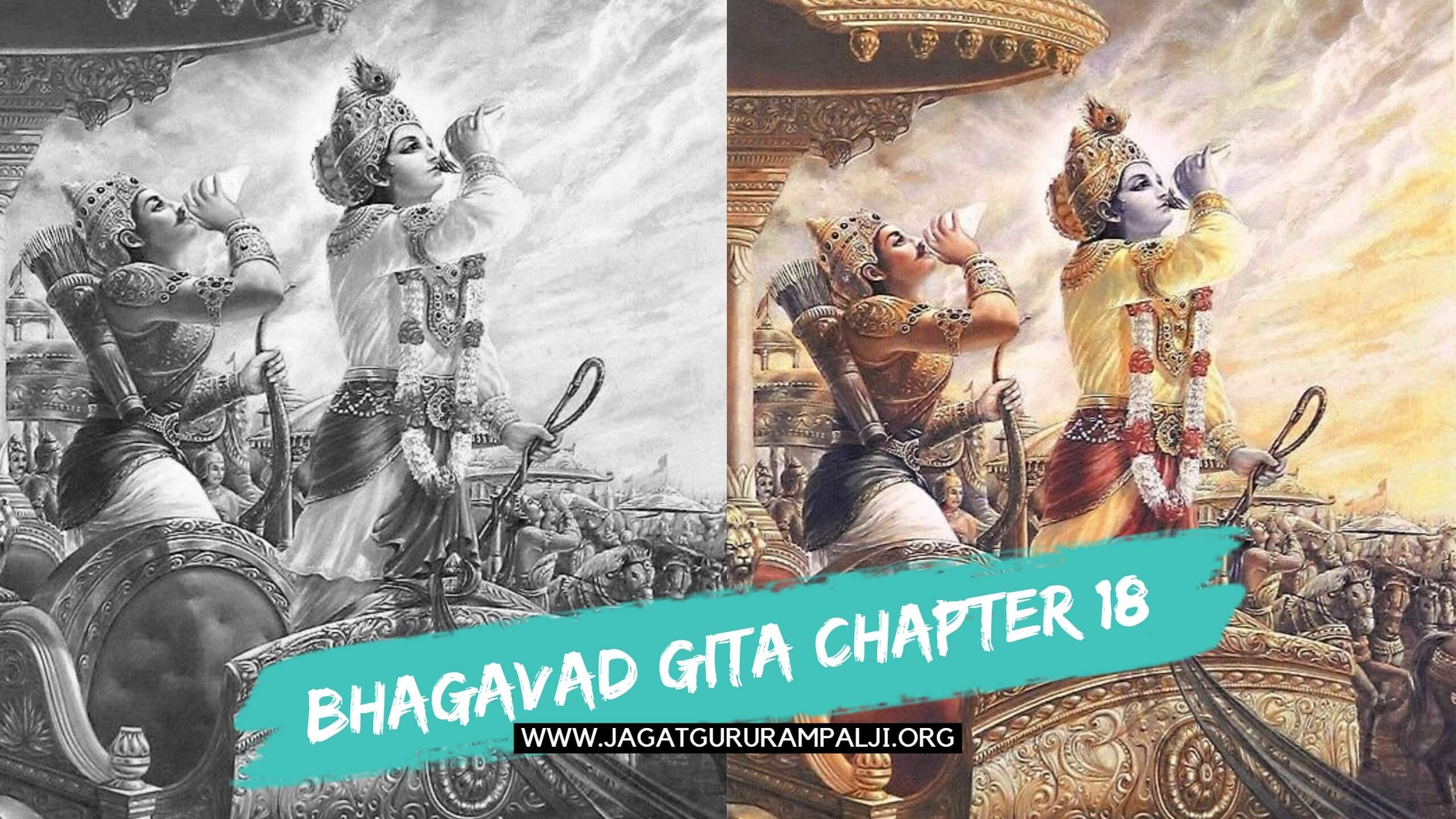
Chapter 18 Bhagavad Gita Sant Rampal Ji
Bhagavad-Gita: Chapter 2, Verse 13 Commentaries of the Four Authorized Vaisnava Sampradayas as confirmed in the Garga Samhita Canto 10, Chapter 61, Verses 23, 24, 25, 26 Thus ends commentaries of chapter 2, verse 13 of the Srimad Bhagavad-Gita. Verse 13
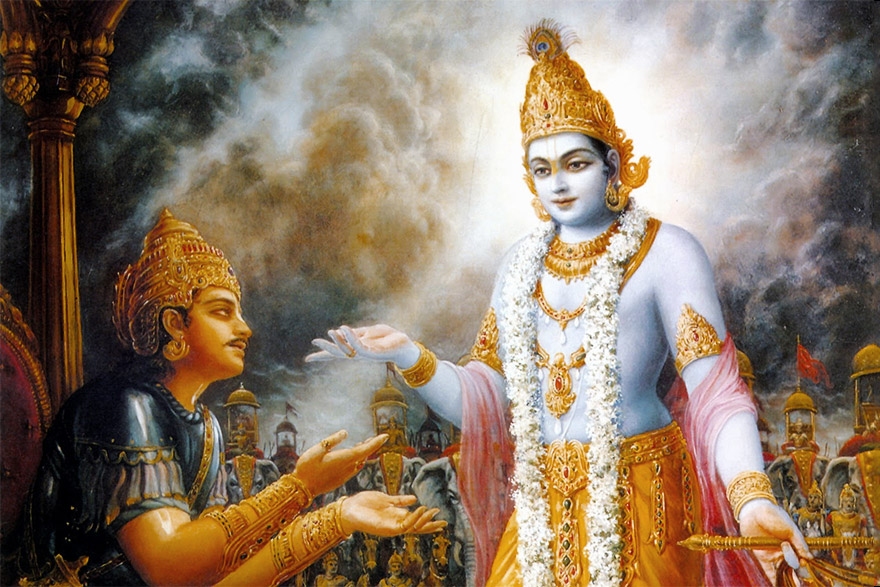
Top 10 Bhagavad Gita Quotes That Can Change Your Life AstroLaabh
» Text 13 plugin-autotooltip__small plugin-autotooltip_big Bhagavad-gītā As It Is 2.13 As the embodied soul continually passes, in this body, from boyhood to youth to old age, the soul similarly passes into another body at death. The self-realized soul is not bewildered by such a change.

Śrīla Prabhupāda’s Original Books Download
When the sky is reflected in water, the reflections represent both the sun and the moon and the stars also. The stars can be compared to the living entities and the sun or the moon to the Supreme Lord. The individual fragmental spirit soul is represented by Arjuna, and the Supreme Soul is the Personality of Godhead Śrī Kṛṣṇa.

The Bhagavad Gita Book by Ranchor Prime Official Publisher Page Simon & Schuster
Date: Sept. 13, 1971 Location: Mombasa Play / pause Bhagavad-gītā 2.13 0:00 0:00 volume Download Bhagavad-gītā 2.13 Prabhupāda: dehino 'smin yathā dehe kaumāraṁ yauvanaṁ jarā tathā dehāntara-prāptir dhīras tatra na muhyati [ Bg. 2.13]
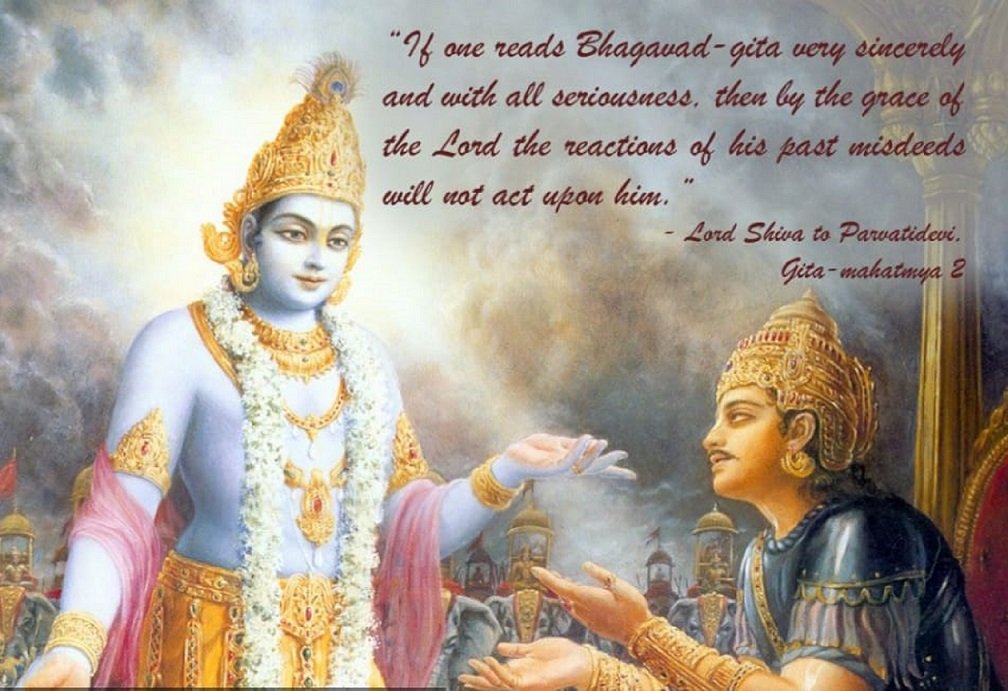
Shrimad Bhagavad Gita in English from Meditation Affinity
BG 2.13: Just as the embodied soul continuously passes from childhood to youth to old age, similarly, at the time of death, the soul passes into another body. The wise are not deluded by this. Commentary With immaculate logic, Shree Krishna establishes the principle of transmigration of the soul from lifetime to lifetime.

Bhagavad Gita Chapter 11, Verse 3 VivekaVani
Although the living entity is completely different from the material body, he somehow becomes related. This also is explained. Bhagavad Gita is Krishna's battlefield discussion with Arjuna. By A.C. Bhaktivedanta Swami Prabhupada. With search engine, art gallery, original Sanskrit, word meanings and purports. 1972 Macmillan edition.
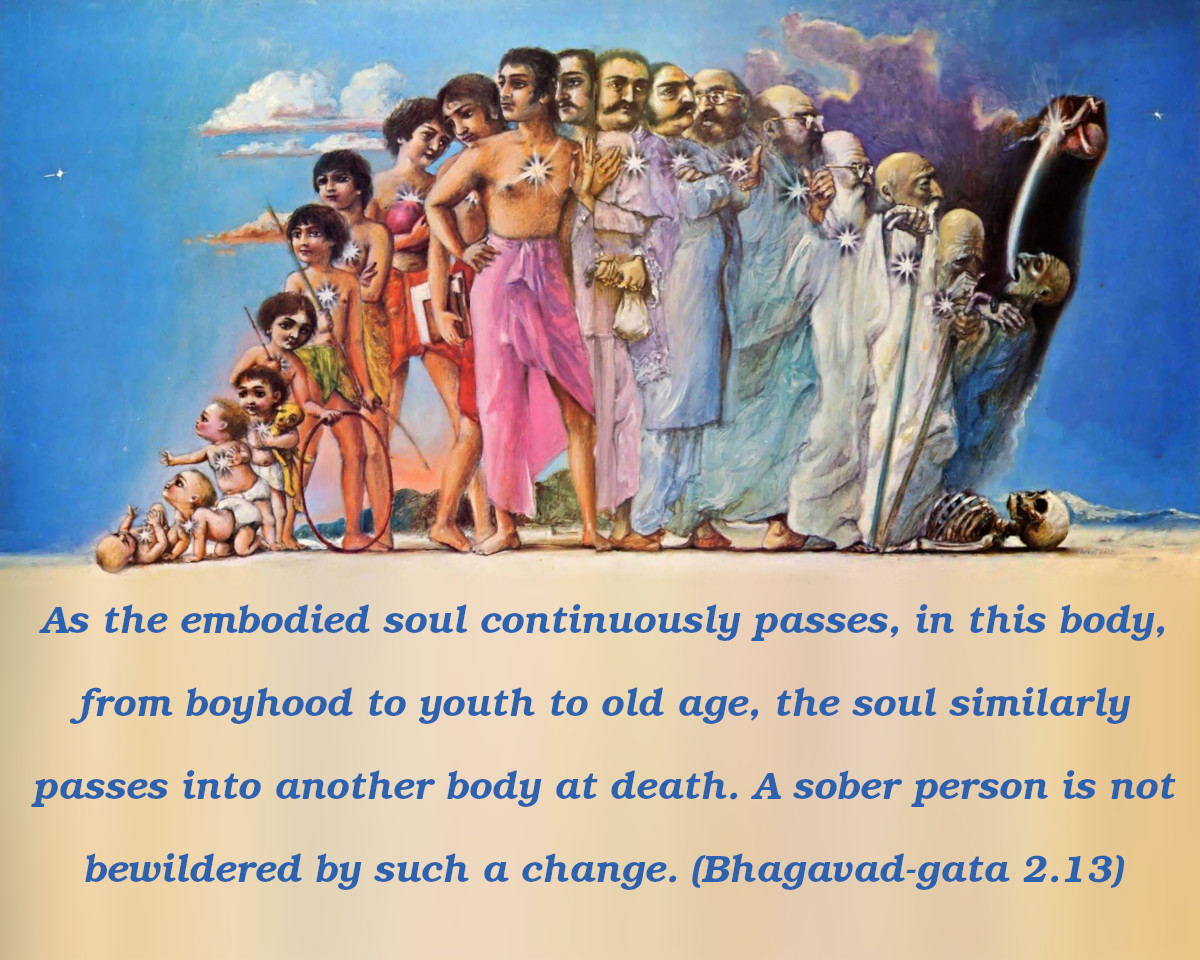
Bhagavad Gita Chapter 2, Verse 13 VivekaVani
BG 2.13 देहिनोऽस्मिन्यथा देहे कौमारं यौवनं जरा। तथा देहान्तरप्राप्तिर्धीरस्तत्र न मुह्यति।।2.13।। dehino 'smin yathā dehe kaumāraṁ yauvanaṁ jarā tathā dehāntara-prāptir dhīras tatra na muhyati
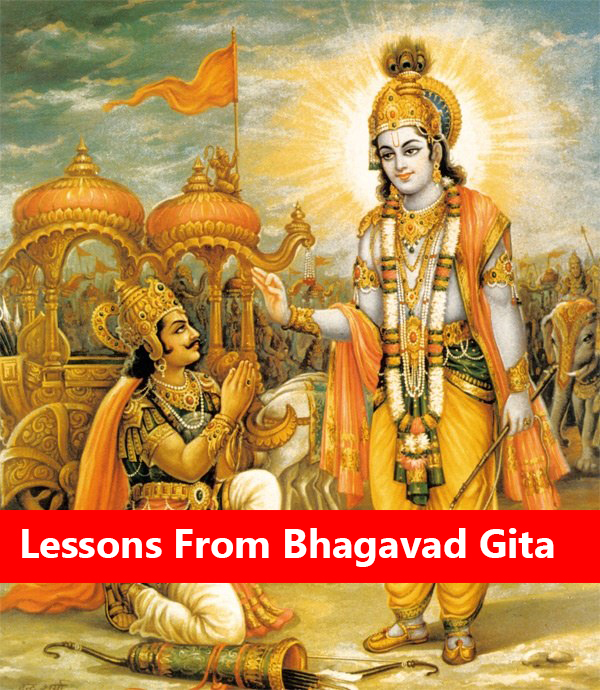
LessonsFromBhagavadGita VivekaVani
BG 13.2: The Supreme Divine Lord said: O Arjun, this body is termed as kṣhetra (the field of activities), and the one who knows this body is called kṣhetrajña (the knower of the field) by the sages who discern the truth about both. Commentary Here, Shree Krishna begins explaining the topic of distinction between the body and spirit.

Srimad Bhagavad Gita 2.66
Holy scriptures Sampradayas Teachers—acharyas Related traditions v t e The Bhagavad Gita ( / ˌbʌɡəvəd ˈɡiːtɑː /; Sanskrit: भगवद्गीता, romanized : bhagavad-gītā, lit. 'The Song by God' [a] ), often referred to as the Gita ( IAST: gītā ), is a 700-verse Hindu scripture, which is part of the epic Mahabharata.